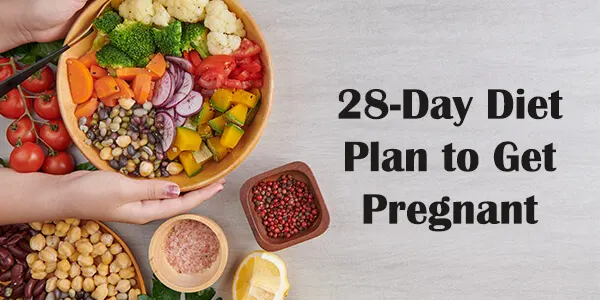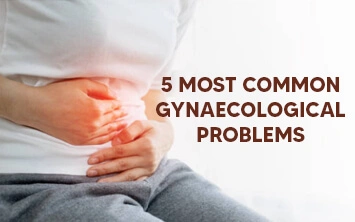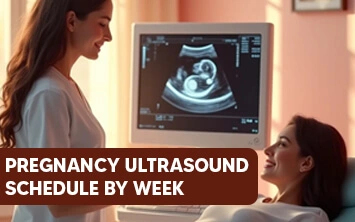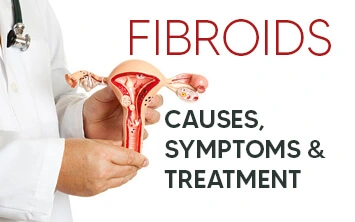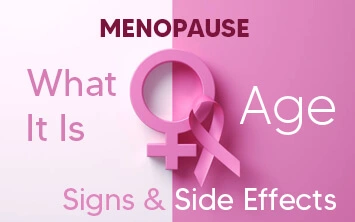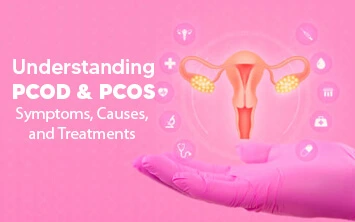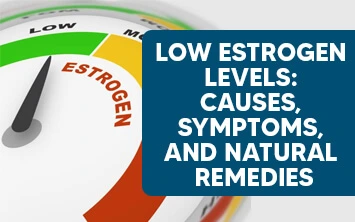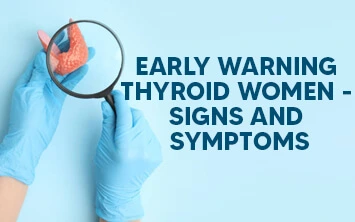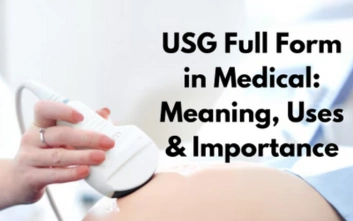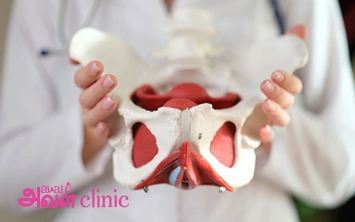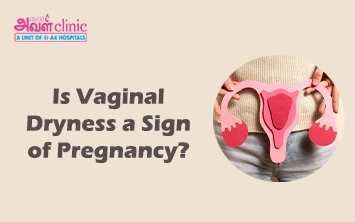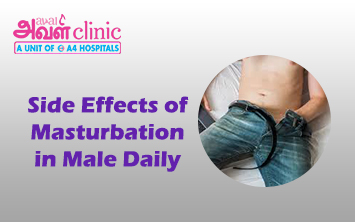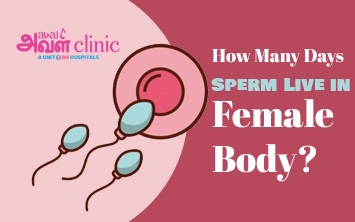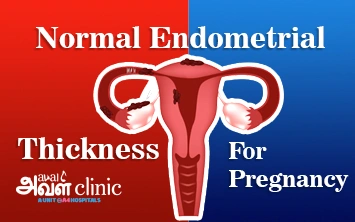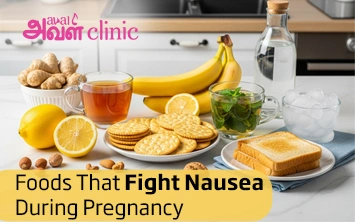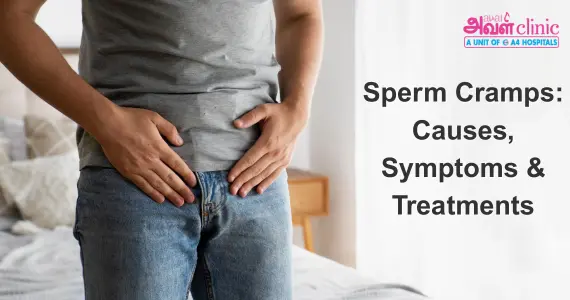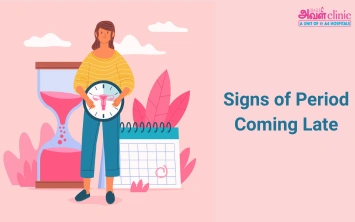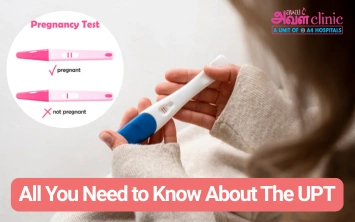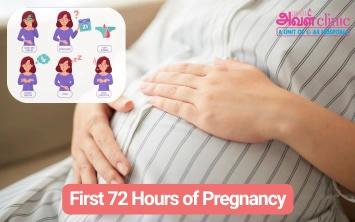Published on: March 24, 2025
Author: Admin
Planning to get pregnant? Well, you are at the right place!
A recent study shows that a well-balanced diet has increased the chances of conception in women by up to 70%. Improved nutrition to your body plays a crucial role in balancing hormones, maintaining tissues, and preparing yourself for a healthy pregnancy. Our 28 day diet plan to get pregnant can help you fulfil certain nutritional needs that boost the quality of sperm and eggs. The nutrients may include antioxidants, folic acid, omega-3 fatty acids and other minerals and vitamins.
Our diet plan is designed to guide couples towards the right nutrition that can help with improving their reproductive health, and achieve healthy pregnancy.
28-Day Diet Plan to Get Pregnant
The 28-Day diet plan to get pregnant with a structured chart to enhance fertility naturally as follows:
Week 1: Detox
Focus on detoxing your system with whole grains and hydration.
- Breakfast: Whole grain toast with omelette and spinach.
- Mid-meal snack: Vitamin C fruits.
- Lunch: Cucumber salad and vegetable pulao.
- Evening snack: Wheat crackers and green tea.
- Dinner: Boiled vegetables and grilled chicken.
Week 2: Ovulation
Consume foods that regulate hormonal functions and support ovulation.
- Breakfast: Chia seeds and berries added with Greek yoghurt.
- Mid-meal snack: Avocado with eggs.
- Lunch: Whole grain bread with a mixed green salad.
- Evening snack: Nuts and seeds.
- Dinner: Fish with steamed sweet potato and broccoli.
Week 3: Implantation
Include anti-inflammatory foods to reduce oxidative stress and support implantation.
- Breakfast: Oats with fruits or sandwiches.
- Mid-meal snack: A handful of sunflower seeds.
- Lunch: Grilled chicken with cherry tomatoes and avocado.
- Evening snack: Carrot or beetroot juice or poha with nuts.
- Dinner: Brown rice with mixed vegetables and tofu.
Week 4: Hormone Balance
Consume foods that stabilize hormone levels.
- Breakfast: Mint chutney with paneer paratha or vegetable upma.
- Mid-meal snack: Fruits like strawberries, oranges, or papaya.
- Lunch: Whole wheat chapati with spinach or pea curry and Greek yoghurt.
- Evening snack: Herbal tea with dried raisins or coconut water with dried fruits.
- Dinner: Brown rice or roti with lentil curry and beans.
Want a Diet Plan That Boosts Your Chances to Conceive?
Call Now: 80047 80048Why Nutrition is Crucial in Fertility
When it comes to fertility, nutrition deficiency can significantly disrupt bodily functions including hormones.
Nutrition plays a vital role in hormonal balance, egg quality, and implantation success. For example, increasing your estrogen levels naturally can support better reproductive health and fertility.
The interaction between the pituitary gland in the brain, the testes in men, and the ovaries in women is widely dependent on the hormonal interplay. The changes in hormones can disrupt:
- Sperm production
- Ovulation
- Fertility
Consuming an adequate amount of micronutrients, macronutrients, and calories can support a healthy metabolism. This in turn is crucial for reproductive health, including conception, and fetal development. The nutrition deficiency can negatively impact fertility in both men and women in the following ways:
Caloric Restriction
- Severe restriction in calorie consumption can cause irregular periods and pubertal delays.
- It can also prevent ovaries from releasing eggs and producing sperm.
- It also affects the production and regulation of sex hormones in both men and women.
Protein & Micronutrient Deficiency
- Having insufficient vitamins, minerals, and proteins can stop ovulation.
- It can also disrupt the blood flow to the reproductive organs, which can significantly affect the egg and sperm maturation and fertilization process.
- The lack of zinc, iron, vitamin D, and folate can negatively impact fertility in both men and women. This affects the overall reproductive health.
- The lack of antioxidants can cause oxidative stress and damage reproductive cells.
Diet-Induced Hormonal Imbalance
- The nutrition deficiency can indeed disrupt hormone pathways, causing hormonal imbalances.
- The nutrition deficiency can also affect the regulation of reproductive hormones such as FSH, LH, estrogen and progesterone. These hormones play a crucial role in ovulation.
- This can also negatively impact fertility, even after childbirth.
Disruption of Embryo Implantation
- Inadequate nutrients can significantly impact the uterine lining (the environment where the implantation takes place).
- Complications that are associated with hormonal imbalance, blood flow, and nutrient transport can also affect fertilization in the uterine lining.
- These complications can also negatively impact the development of early embryos and the quality of eggs.
Tips to Get Pregnant in a Healthier Way
If you are pregnant or planning to get pregnant, consuming the right balance of nutrients and a few lifestyle changes are a game changer. These have the power to boost not only your fertility but also your overall health.
For those trying to conceive, focusing on egg quality and size matters too. You can read about the minimum egg size to get pregnant and how diet can support it.
Following are some of the tips that can help you get pregnant in a healthier way.
Maintaining a Healthy Weight
If you are either overweight or underweight, both have the possibility of disrupting hormonal functions. This can lead to an irregular menstrual cycle and affect the ovulation process, which is crucial to get pregnant. Hence, it is suggested by the experts to check your BMI regularly to enhance your chances of getting pregnant.
Regular Exercise
Exercising regularly, yet moderately can indeed help with proper blood circulation, reduce stress, and balance hormones. Moderate exercises may include yoga, swimming, and walking. These factors significantly play a crucial role in promoting reproductive health.
Balanced Psychological State
To balance your psychological state, meditation and deep breathing exercises are important. These practices can make a huge impact in reducing stress and balancing your state of mind. When you have a balanced psychological state, your body secretes endorphin hormones, which are crucial for conception. In addition, emotional support from dear ones can also help with fertility.
Consumption of Adequate Nutrients
The consumption of nutrients like folate, vitamin B12, iron, and vitamin C can certainly enhance your overall reproductive health. The overall reproductive health may also include egg quality and fetal development.
Foods that Can Improve Fertility
Along with following a healthier way to get pregnant, consuming nutrient-rich foods plays a significant role in improving fertility.
Following are some of the pre pregnancy diet chart recommendations to enhance reproductive outcomes in women:
1. Macronutrients
Carbohydrates
Including complex carbohydrates in your diet can stabilize insulin and provide steady energy.
Sources of carbohydrates:
- Vegetables
- Fruits
- Whole grains
Protein
High-quality lean protein can help regulate reproductive hormones.
Sources of protein:
- Greek yoghurt
- Fish
- Low-fat milk
- Egg whites
- Tofu
- Beans
- Peas
- Lentils
Fats
Consumption of healthy fats can help with hormone production and absorbing fat-soluble vitamins.
Sources of fats:
- Avocado
- Olive oil
2. Micronutrients
Folic Acid
This nutrient is essential for the synthesis of RNA and DNA in the fetus.
Sources of folic acid:
- Legumes
- Leafy greens
- Avocado
- Fortified grains
- Citrus fruits
Iron
Iron-rich foods help regulate the menstrual cycle, ovulation, and anemia conditions.
Sources of iron:
- Red meat
- Spinach
- Dried raisins
- Apricots
- Beans
- Poultry and pork
- Bread, pasta, and iron-fortified cereals
- Oysters
- Seafood
Zinc
This nutrient plays a significant role in developing reproductive organs.
Sources of zinc:
- Meat
- Fish
- Seafood
- Whole grains
- Nuts and seeds
- Eggs
Vitamin D
Vitamin D improves fertility outcomes, strengthens bones, and reduces pregnancy-related complications.
Sources of vitamin D:
- Fatty fish
- Eggs
- Fortified dairy
3. Antioxidants
Antioxidant-rich foods protect reproductive cells from oxidative damage.
Sources of antioxidants:
- Fruits
- Vegetables
- Nuts and seeds
- Whole grains
- Herbs and spices
- Cocoa
- Leafy greens
4. Omega-3s
Omega-3 fatty acids help regulate the uterine lining and maintain hormonal balance.
Sources of omega-3s:
- Fatty fish
- Walnuts
- Chia seeds
- Flax seeds
5. Hydration
Proper hydration is crucial for reproductive health, aiding cervical mucus production and blood circulation.
Sources of hydration:
- 8 glasses of water
- Tender coconut
- Fresh juice without sugar
Foods to Avoid to Get Pregnant
Couples who are trying to get pregnant should be mindful of what they are consuming. Certain foods have a negative impact on fertility and reproductive health. Such foods include:
- Undercooked or raw meat
- Uncooked or raw eggs
- Frozen foods and processed meat
- Excessive caffeine consumption
- Foods containing high levels of vitamin A
- Unpasteurized milk and dairy products
- Soft cheeses, yogurt, and milk made from unpasteurized milk
- Unwashed and packaged salads
- Tuna fish (due to high mercury levels)
- Heavy alcohol consumption
- High glycemic foods like French fries, cornflakes, and mashed potatoes
- Smoking (should be completely avoided)
Highly processed foods or MSG-heavy options like instant noodles can disrupt hormone balance. Curious? Check if eating Maggi during pregnancy is actually safe or not.
The Danger of Anemia Condition During Pregnancy
Anemia is a medical condition where a person has an inadequate amount of hemoglobin or healthy red blood cells. These cells are crucial for carrying oxygen to tissues in the body. The condition is especially dangerous for pregnant women as it can affect both the expectant mother and the growing fetus.
Common Symptoms of Anemia
- Shortness of breath
- Weakness
- Tiredness
- Pale or yellowish skin
- Heart arrhythmia
- Chest pain
- Dizziness
- Cold feet and hands
- Headache
The condition can be prevented by consuming iron-rich foods. The consumption of vitamin C-rich foods can also help with better absorption of iron nutrients. Early diagnosis and treatment for anemia can reduce severe complications in pregnant women.
Note:
During pregnancy, hormonal changes increase the risk of gum diseases. This happens as the gums become more sensitive, leading to bleeding and inflammation. Practicing good oral hygiene is significant during this period.

